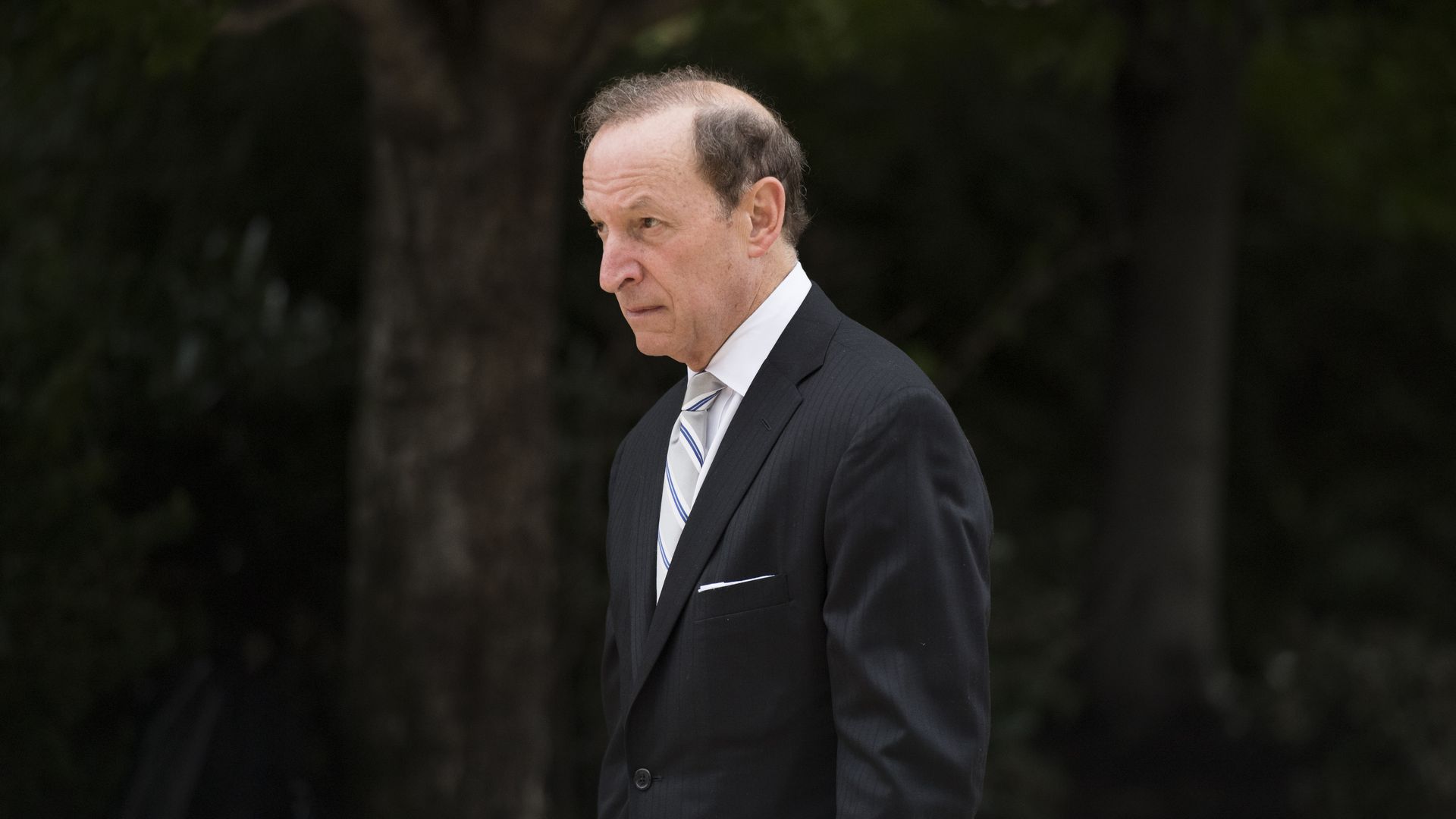China's influence agents lawyer up
Add Axios as your preferred source to
see more of our stories on Google.

Abbe Lowell arrives for the funeral of the late Sen. John McCain, Sept. 1, 2018. Credit: Tom Williams/CQ Roll Call/Getty
People suspected of acting as foreign agents have sought the assistance of U.S. lawyers — and in some cases, the same lawyer who has represented top Trump administration officials during the course of the Russian inquiry.
The big picture: The phenomenon underscores the web of lobbying, money and court cases that have resulted from the Chinese government's efforts to influence U.S. decision-making.
Context: The U.S. government has been pursuing more investigations into Chinese government-directed operations to influence politics and institutions.
Driving the news: Hawaii-based consultant Nickie Mali Lum Davis recently pleaded guilty to illegally lobbying the Trump administration on behalf of the Chinese government.
Background: There's a bit of family history here. Lum Davis's parents, Gene and Nora Lum, pleaded guilty in 1997 to an illegal campaign fundraising scheme that benefited Democrats.
- A 1998 Senate report identified a Macao billionaire named Ng Lap Seng as the source of hundreds of thousands of dollars that were illegally channeled to the Democratic National Convention as part of the same scandal. U.S. officials suspected at the time that Ng had "high-level" Chinese government connections and was "protected."
- In 2017, Ng was convicted in connection with a bribery and influence case at the United Nations. U.S. officials suspected that Ng's main contact with Chinese intelligence was through a Chinese national named Qin Fei.
Abbe Lowell, a high-powered lawyer known for representing Jared Kushner and Ivanka Trump during the Russia inquiry, represented both Lum Davis in her recent case and also Qin Fei amid the UN bribery investigation.
- Ng himself also hoped to tap Lowell. According to a September 2017 court filing, a U.S. court granted Ng's request for permission to meet with Lowell while Ng was under house arrest, "with a view to possibly formally retaining him."
- Lowell did not respond to a request for comment.
The bottom line: The Chinese government seems intent on using intermediaries to try to influence U.S. decision-making. When they get caught, though, somebody's got to represent these folks.
